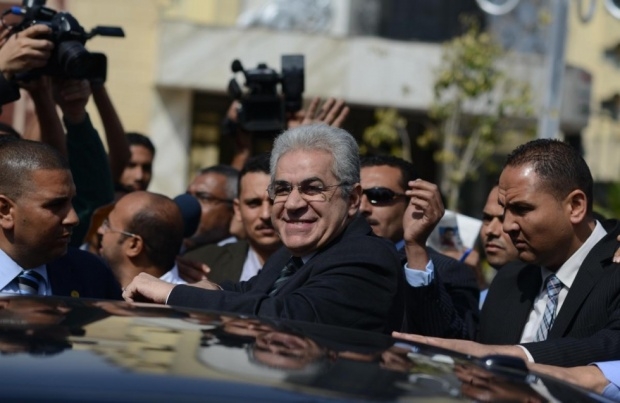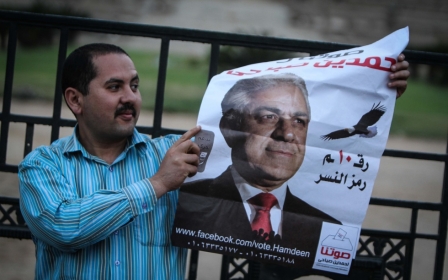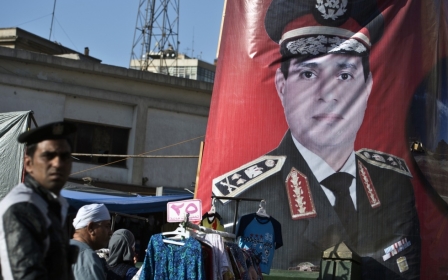Egypt's Sabbahi faces mission impossible at polls

Egypt's Hamdeen Sabbahi, is the sole rival to the former army chief expected to romp to victory in next week's presidential election.
The veteran leftist leader regularly invokes the slogans of "Bread, freedom and social justice" chanted by millions during the uprising that ousted strongman Hosni Mubarak, in campaigning across the country for the May 26-27 poll.
Sabbahi, 60, came third in the 2012 presidential election which was won by the Islamist Mohamed Morsi.
He has no chance of winning the election, experts say.
But only he is running against Abdel Fattah al-Sisi who has promised to fight "terrorism" and restore stability to a country roiled by more than three years of political turmoil.
New MEE newsletter: Jerusalem Dispatch
Sign up to get the latest insights and analysis on Israel-Palestine, alongside Turkey Unpacked and other MEE newsletters
Almost 11 months after Sisi ousted Egypt's first freely elected leader Morsi, Sabbahi's calls are falling on deaf ears amid tough talking from Sisi who insists on "national security" rather than personal freedoms.
A journalist by training, the white-haired Sabbahi who wears spectacles and smart business suits, is married with two children.
He is founder of Al-Karama (Dignity) party, which was refused registration under Mubarak's regime.
He was elected as an independent to parliament in 2000 and 2005, but pulled out of the 2010 poll citing massive fraud in favour of Mubarak's party.
With the army now leading a de facto government installed by Sisi after ousting Morsi, Sabbahi fears a return to authoritarian rule amid a tough police crackdown in which more than 1,400 people, mostly Morsi backers, have been killed and thousands jailed.
Hundreds more have been sentenced to death after speedy trials.
Unlike his opponent who has kept a low campaign profile, Sabbahi has tirelessly criss-crossed the country to showcase his policies, posing as an heir to the charismatic Gamal Abdel Nasser, a champion of pan-Arabism in the 1950s and 1960s.
"We toppled two presidents but Egypt is still not calm," Sabbahi told AFP as he campaigned in the Nile Delta province of Dakhaliya on Thursday.
"And it will not calm down unless it becomes a (democratic) state. For this to happen it is necessary to have a candidate who represents the revolutionary goals, which is what we are doing."
However, he has not openly criticised Sisi, and has protested against Egypt's first democratically elected president, Morsi, calling for him to be removed from power.
As Sisi currently rides a wave of popularity, Sabbahi is trying to mobilise "revolutionary" forces, particularly youth movements.
Some of these have offered him their support, but others have refused to take part in what they say is a "cosmetic" election.
Addressing youth activists, including those who are behind bars, Sabbahi has promised that if elected he would scrap a controversial law that bans all but police-sanctioned rallies.
Several leading activists involved in the demonstrations that led to Mubarak's downfall have been jailed by the military-installed authorities for holding such unlicensed protests.
Sabbahi has not offered any similar assurances to jailed supporters of Morsi's Muslim Brotherhood, however, who see view him as a part of the 3rd of July military coup.
Although Sabbahi's supporters have decried state support for Sisi's election campaign, many of his critics argue that he is tolerated – if not aided - by Sisi in the latter's bid to show that the elections are plural.
Middle East Eye delivers independent and unrivalled coverage and analysis of the Middle East, North Africa and beyond. To learn more about republishing this content and the associated fees, please fill out this form. More about MEE can be found here.




